Balancing Freedom and Accountability: Reforming Bangladesh's Media Without Interference
1. Reforming Media Without Interference: Striking the Balance in Bangladesh
Overcoming all these hurdles require a reform of the media in Bangladesh and to rid the society of half-baked truths and orange hued biased news. But reforms must also guarantee media freedom to continue being a watchdog institution and an outlier for the people (Ahmed, 2020). These change agents are realized in the media, through the media but with limited direct intervention that compromises its freedom lest its creativity and invention be constricted.
There should be an inclusive model. It is important that all stakeholders ranging from the journalists, the media owners, civil society and the policymakers to seek to work together in designing the reforms (HOSSAIN, 2020). The promotion self-regulation by independent bodies like the press council would improve the functions of media freedom without the presence of external control measures. Increased disclosure in ownership and financing coupled with promoting digital literacy as well as sponsoring fact-checking programs might help in countering fake news and biases (Abedin, 2020).
Shaheen concludes that government in question should encourage dialogue and protect journalists, as well as support independent public broadcasting. Agree to differ: Democracy upon its principles is affected not a whit by the notion that professionalism can come from public funding of quality journalism and causes such as investigative reporting (Hosen & Bhuiyan, 2024).
Bangladesh has an independent body for media reform commission that can negotiate changes in the system and media freedom of Bangladesh in a better way. Only when these ingredients are enforced and their principles respected it is possible to pave the path for reform but also ensuring the continual guarding of democracy by the media (Rahman & Masud-All-Kamal, 2024).
2. Understanding the Need for Reform in Bangladesh's Media Landscape:
Every day new newspapers, TV channels and digital media outlets are being established in Bangladesh. However, this growth obscured major problems that require reform to continue maintaining media as one of the sturdy pillars of democracy (Bhuiyan, 2024).
Main issues of ethical nature having dented public trust in the media include sensationalism and the provision of incorrect information. The corporate and political interests most of the time erode the independence of the editorial. Finally, digital disruption exacerbated through social media has contributed to worsen the problem while dismissing the role of journalist as watchdogs. Another aspect that hinders the Media industry is the financial constraints such as employment a business model that depends on advertisement income that compromises the neutrality and viability of the media business (Jubaer, 2024).
The media continued to be exposed to threats, threats of harassment, threats of death, and legal attacks that hinder the freedom of the press”. It intensifies conflicts of interest and restricts public responsibility because of concealed proprietorship (Hoque, 2021).
These problems cannot be solved, but they can be resolved through reform in order to make the media in the country legitimate, more professional, and stronger so it remains a watchdog of the nation’s populace.
3. Reform vs. Interference: Walking the Tightrope
Change is required in media to ensure that ethical slip is corrected, fake news is defused, and structural failures are corrected but not at the expense of freedom of press. The difference between reform and interference is an intention and manner of doing it is different (Ajman, 2024). Reform on the other hand covers large concerns that aim at professionalization, ethical standards among them and interference refers to the act of putting pressure in order to manipulate certain agenda or limit the opinions that are aired (Ruhullah et al., 2024)
Thus, such liberalization and reform must never be a Solo activity between Journalists and Media owners but always encourage the central Government and other civil society. Ethical problems in the media can be solved without outside supervision, thus, such measures as the enhancement of self-regulatory bodies with independent press councils can meet the purpose (Saha et al., 2022). Legal rights for media owners and policy variations guarantee press freedom while ethnical impartiality increases the public credibility.
Implementation issues are usually anchored on the political dimensions of reforms where changes are implemented unilaterally or lag policy goals. Therefore, when making reforms especial on the internet, the reforms should be undertaken openly and without any prejudice to close down the operations of anybody, so as not to be labeled as the internet censorship (Moniruzzaman, 2021). Encouraging honest reporting, providing incentives to those who produce good media content, and avoiding the politically motivated change of public broadcasters are measured that correct reforms should improve the media not oppress it (Sheikh & Ahmed, 2020).
Taking the fine line between conformity and autonomy for media, Bangladesh’s media reform commission can implement the changes without infringing on the authority. The following approach will enhance the media’s democracy watchdog function while at the same time protect its freedom and pluralism (Bair et al., 2020).
4. Principles for Non-Interfering Media Reform:
4.1. Engage Stakeholders in Policy Design:
There is a need to involve everyone during the process of reform. There is the need for the media, none-governmental organizations, scholars, and policy makers to jointly analyze challenges and find a way forward. The commission can play a role of a mediator which means that instead of imposing strict actions, the commission can encourage people to speak out (Van Schendel, 2020).
4.2. Strengthen Media Self-Regulation:
Lacking external control, responding with self-regulatory institutions, such as press councils, journalist associations, etc. Ethics will be followed. Such bodies should be supported with sound related procedures for dealing with various grievances, settling differed cases and enforcing related ethics in journalism (Ahmed, 2020).
4.3. Enhance Legal Protections for Journalists:
Free press however cannot be fully realized if the reporters feel that they are in danger. To achieve this, reform must involve some of the following; They include; Scrutiny of laws that outlaw reporting, the right to information agency, legal frameworks of the whistleblower and protection of investigative journalists (HOSSAIN, 2020).
4.4. Encourage Transparency in Media Ownership:
Mostopaqueownershipstructurescauseconflictofinterestandundueinfluence.s Second, reforms should prevent ownership obscure and funding tracks so that all should be equal when competing for media market (Abedin, 2020).
4.5. Promote Digital Literacy and Counter Misinformation:
With the advancement of digital platforms people have been given a means and way to get information, on the other hand, the social networks have also led to the spread of fake information (Hosen & Bhuiyan, 2024). They can entail collaborations between media houses, technology firms and schools on creating awareness, as well as setting up of checker ship bureaus.
4.6. Support Independent Public Broadcasting:
The station can even be used as a measure of fairness and professionalism by public broadcasters. Change should be aimed at removing party political influence and political control, recognizing editorial autonomy and intensity of public broadcasters’ funding (Rahman et al., 2024).
4.7. Provide Incentives for Quality Journalism:
It may involve funds support in the form of grant or award for investigative journalism, community journalism or projects that seek to empower marginalized groups. These measures promote production of quality content without interfering with the news house’s opinion (Bhuiyan, 2024).
5. Role of the Media Reform Commission:
The Media Reform Commission of Bangladesh has a very important responsibility for constructing ethical, balanced and independent media system. It has to provide a new institutional focus to systematic change while not interfering with press freedom and editorial control (Jubaer, 2024).
First, the commission should make the extensive evaluation of the media sector and define the main problems in terms of ethical violations, economic risks, threats of digital misinformation, and journalist security threats (Hoque, 2021). These findings will facilitate making informed and focused reform efforts because the data derived from them are straightforward.
Second, it should promote stakeholder dialogue by encouraging interactive discussions between and among journalists and media owners, policymakers, civil society and academia. It makes improvements attentive to minority opinions or needs while avoiding resistance because they do not appear as if they are being forced on the population, or existed partisan interests (Ajman, 2024).
Third, and perhaps most important, the commission can legislatively recommend that laws that have remained in the code but are still violate free press, such as defamation laws, be brought up to modern standards; and demand better legal defend for media practitioners. At the same time, it ought to promote self-governing bodies such as press councils that may help solve ethical offenses locally (Ruhullah et al., 2024).
Fourth, the commission should enhance the transparency of media ownership and funds and eliminate conflict of interest (Ajman, 2024).
In the last place, it needs to act as a regulator and facilitator of change and, where necessary, negotiation, and conflict-solving to implement the reforms rather than as an enforcer (Ajman, 2024).
The Media Reform Commission may help redevelop Bangladesh’s media sector that supports professionalism, stability, and media freedom necessary for a society founded on democracy by focusing on the companies’ commitments to disclosure, cooperation, and responsibility (Saha et al., 2022).
6. Case Studies: Global Lessons on Non-Interfering Media Reform
Many countries of the world are relevant examples of how media reforms can be implemented without infringing on the rights of media practitioners. This paper shows that when media challenges tasks are based on inclusion, independence, and collaboration, solutions can be achieved efficiently.
6.1. South Africa: Press Ombudsman:
Independent Press Council is the official press council that deals with the complaints from the media within South Africa. The media ombudsman also serves in compliance with ethical violations and act as a referee between the public and the media (Moniruzzaman, 2021). This model provides an actual example of self-regulatory culture for journalism and prevents government interference into journalists’ work.
6.2. Finland: State Support for the Maintenance of Journalistic Standards
Finnish public money is used to finance investigative journalism and local media. It helps to provide certainty of the essential journalism funding when advertisement sales are in decline; processes are also in place to avoid political impact. With transparency and the oversight of Polish media in mind, Finland bolsters the country media environment while safeguarding journalistic self-governance (Sheikh & Ahmed, 2020).
6.3. India: Digital Fact-Checking Practices:
Hindi media is relatively new to independent digital fact-checkers which include the likes of Alt news and Boom to name but a few. These initiatives work with SM firms, NGOs, and journalists to enhance accuracy without the need for state controls while emphasizing the part played by non-state actors in revitalizing digital media (Bair et al., 2020).
Even these examples suggest that for arriving at media reform, the only way is through endowing independence to the organizations, establishing synergy, and calling for ethical standards. Bangladesh can learn such approaches in order to implement transparency and non-interference and make the media environment of the country free and sustainable.
7. Challenges in Balancing Reform and Independence
While non-interfering reform is ideal, several challenges may arise:
Resistance from Media Owners: The media includes self-serving individuals who will resist transparency and any other ethical reforms.
Misuse of Technology: Any digital literacy campaigns that are meant to educate can easily or even deliberately be used as censorship tools (Van Schendel, 2020).
Public Perception: There is a thin line, as to where ‘reform’ ends and ‘interference’ begins. The achievements of any reformation agenda can be apprehended as a political process unless the reformation process is open (Jubaer, 2024).
Mitigating these challenges demands criteria, understanding or appreciation by the various affected stakeholders and periodical or consistent appraisal of the reform initiatives.
8. Conclusion: A Path Forward
This paper argues that it is not only possible but also necessary to reform Bangladesh media without compromising its freedom to operate. It has to be done collectively, openly, and with high level of determination to protect press freedom at all costs.
The media reform commission has an advantage of simultaneously working to effect change system based rather than directly interfering with media operations of the independent fourth estate. Thus, if Bangladesh concentrates on four principles involving self-regulation, legal frameworks, media transparency, and innovation, it can build ethical and strong media system that respects Bangladeshi diversity.
That kind of success can only be viable if the commission removes itself as a final arbiter, the action of media reform should empower rather than weaken the cardinal virtues of free speech.

References:
Ahmed, A. T. (2020). Factors that Push Bangladeshi Media to Exercise Self-Censorship (Master's thesis, The University of Wisconsin-Milwaukee).
HOSSAIN, A. Z. (2020). MEDIA AND FREEDOM OF EXPRESSION IN CONTEMPORARY BANGLADESH (Doctoral dissertation, MAHIDOL UNIVERSITY).
Abedin, M. J. (2020). Foreign interference in Bangladesh: A case study of military-backed caretaker government in 2007-2008. European Journal of Social Sciences Studies.
Hosen, I., & Bhuiyan, A. M. (2024). The Intersection of Media and Politics in South Asia and the West. Journal of Governance, Security & Development, 5(1).
Rahman, S., & Masud-All-Kamal, M. (Eds.). (2024). Social Transformation in Bangladesh: Pathways, Challenges and the Way Forward. Taylor & Francis.
Bhuiyan, M. M. H. B. (2024). Agenda Building on Facebook in the Context of Authoritarian Context of Bangladesh (Doctoral dissertation).
Jubaer, A. K. M. (2024). Enhancing Public Finance Accountability: A Comprehensive Analysis of Parliamentary Oversight on Audit Reports in Bangladesh.
Hoque, R. (2021). Deconstructing public participation and deliberation in constitutional amendment in Bangladesh. Australian Journal of Asian Law, 21(2), 7-25.
Ajman, S. (2024). Beyond headlines: A qualitative analysis of environmental reporting in bangladeshi print media. International Journal of Science and Research Archive, 11(2), 358-365.
Ruhullah, M. E., Ushama, T., & binti Norman, N. A. (2024). Integrating Knowledge and Democracy for Practical Reform to Overcome Political Crisis in Bangladesh. Khazanah Sosial, 6(1), 132-151.
Saha, S., Rajib, S. U., & Hoque, M. (2022). Reformation of Local Government in a Developing Country: Insights from Historical Evidence of Bangladesh. Journal of Governance & Public Policy, 12(2), 35-55.
Moniruzzaman, M. (2021). Citizen journalism in bangladesh and its legal aspects. International Journal of Multidisciplinary Informative Research and Review.(1), 5, 232-243.
Sheikh, M. Z. H., & Ahmed, Z. S. (2020). Military, authoritarianism and Islam: A comparative analysis of Bangladesh and Pakistan. Politics and Religion, 13(2), 333-360.
Bair, J., Anner, M., & Blasi, J. (2020). The political economy of private and public regulation in post-Rana Plaza Bangladesh. ilr Review, 73(4), 969-994.
Van Schendel, W. (2020). A history of Bangladesh. Cambridge University Press.
-
Previous Post
Ovi’s Scandalous Financial Corruption Under Sheikh Hasina’s Shadow
-
Next Post
Statement: Attacks on Media Freedom and the State’s Irresponsibility
You May Also Like
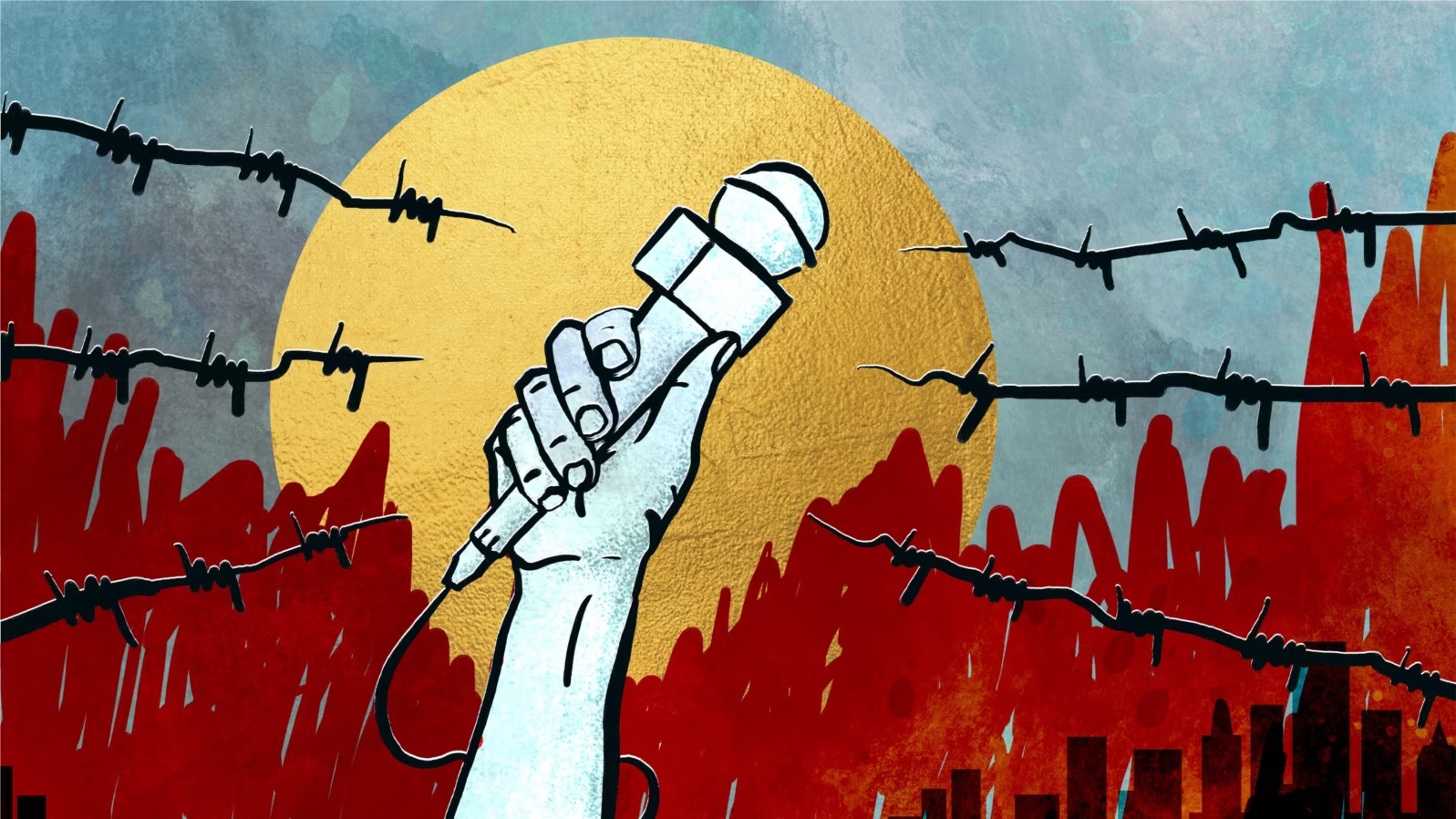
Press Freedom and Protection in Bangladesh: Government's Words vs. Actions
Despite assurances from the interim government regarding the protection and freedom of the media, threats and attacks continue against journalists and media outlets.
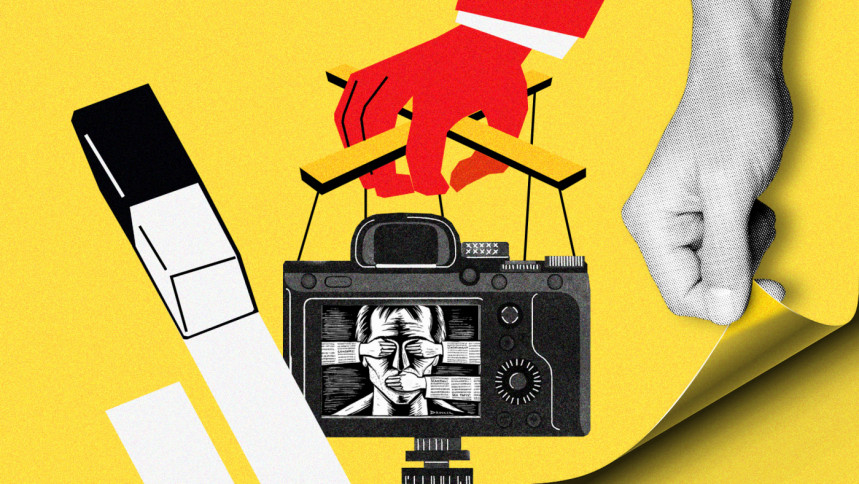
Balancing Freedom and Accountability: Reforming Bangladesh's Media Without Interference
This paper argues that it is not only possible but also necessary to reform Bangladesh media without compromising its freedom to operate.
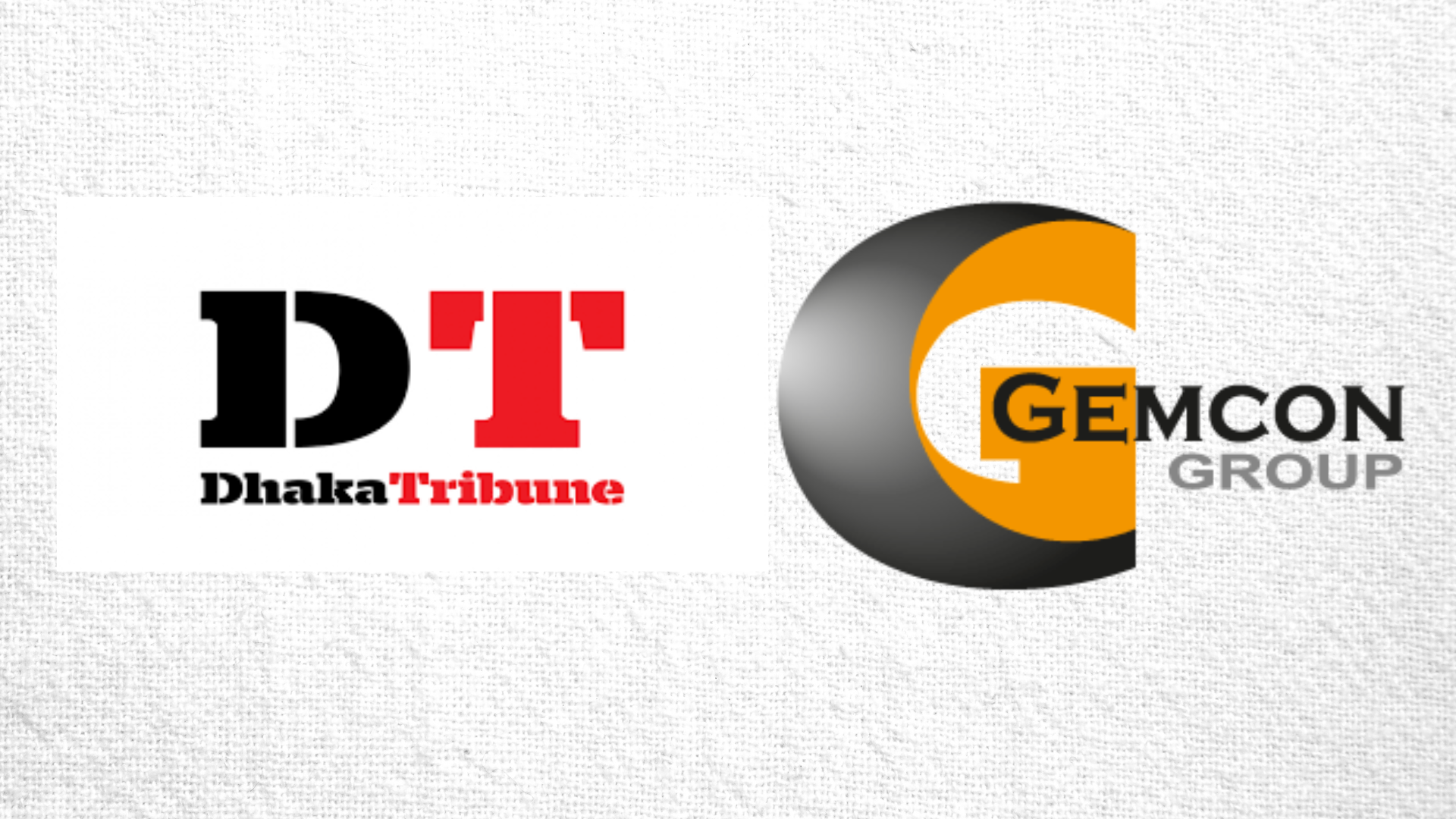
Discontent Spreads at Gemcon Group's Dhaka Tribune
In an attempt to calm tensions, Editor Zafar Sobhan, known for his repeated unfulfilled promises, has called for a special meeting this Sunday.

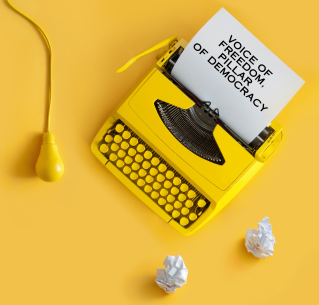
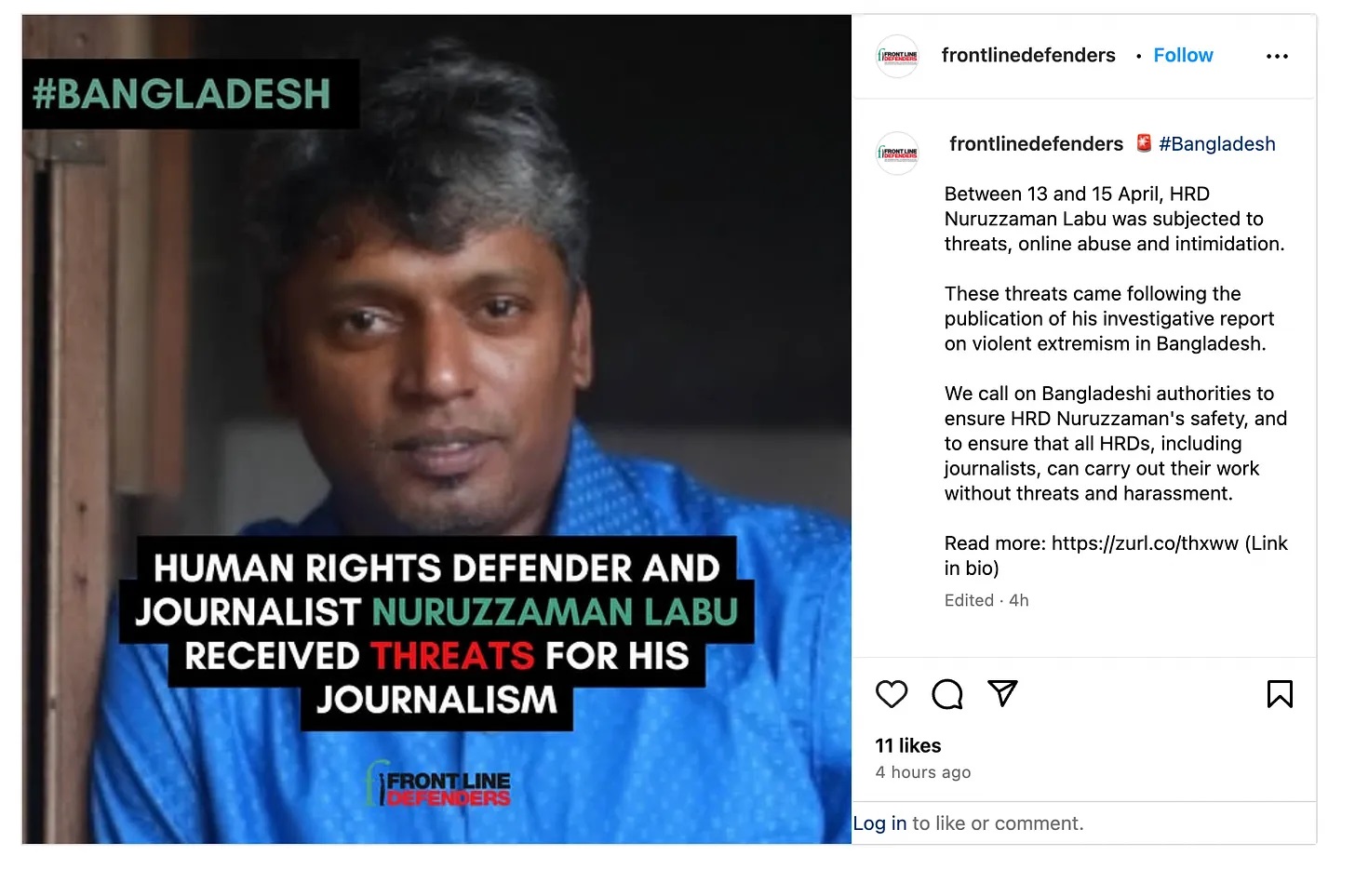
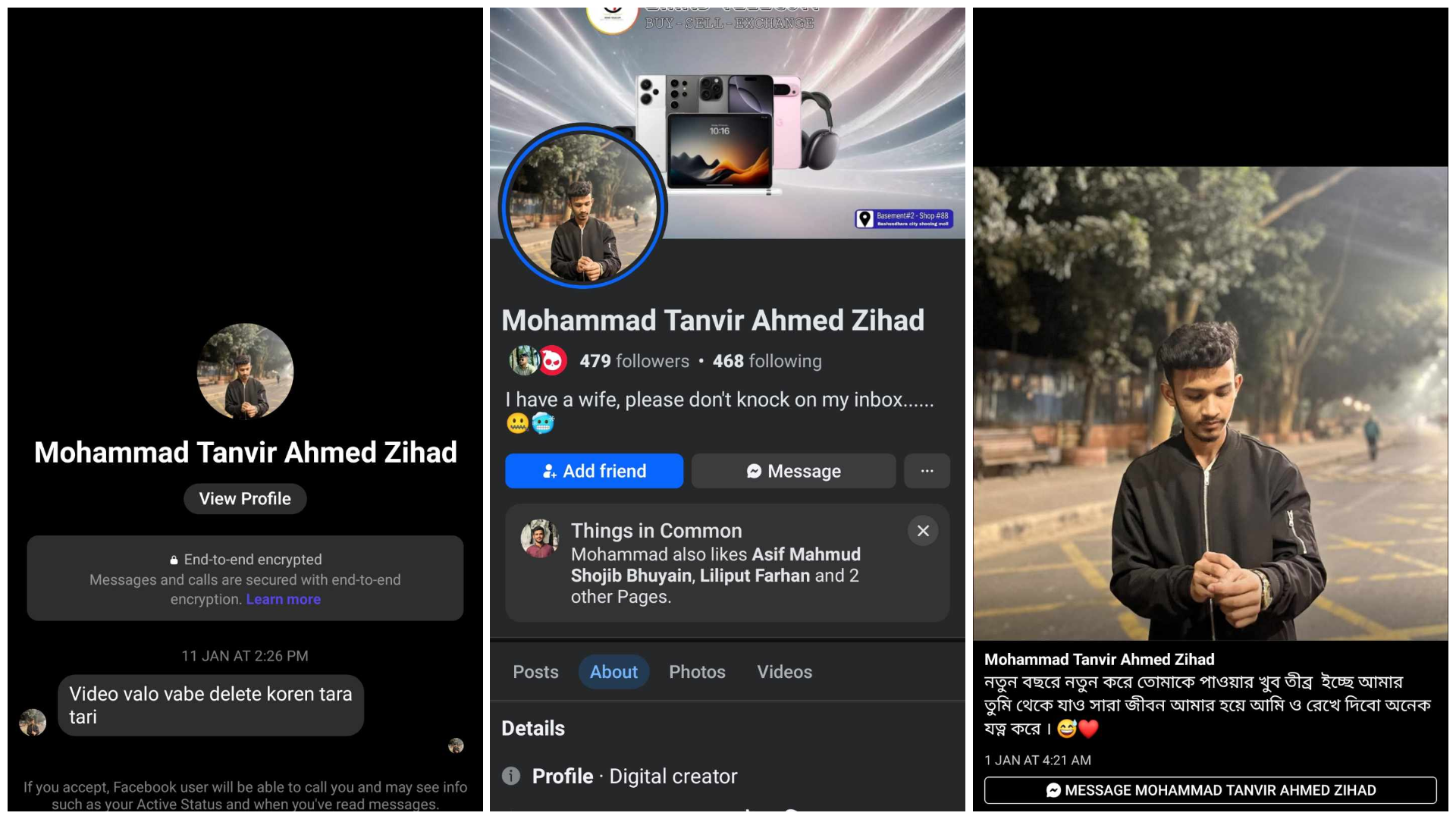
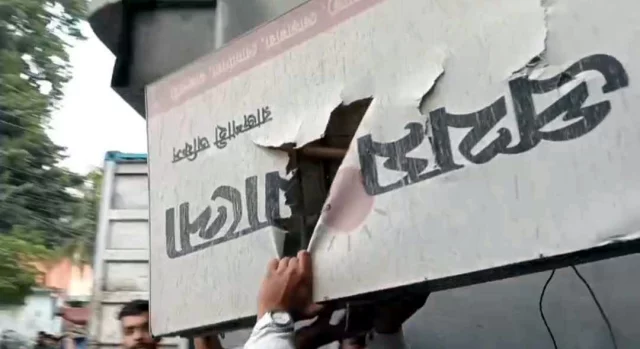
Two Comments